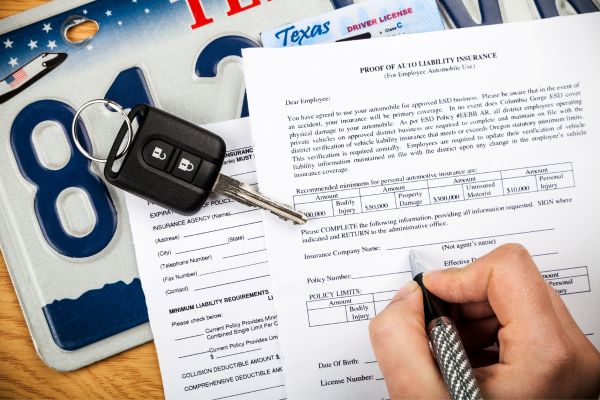Homeowners insurance guide: A beginner’s overview
Homeowners insurance, also called home insurance, should not be considered a luxury. Not only does it protect your home and possessions from damage or theft, but also because you can get it at a reasonable price. Nearly every mortgage company requires that borrowers have proof of Homeowners insurance guide to prove they have coverage for the fair or full price of a property.
To have insurance, you don’t need to own your house. However, many landlords require that tenants maintain renter insurance coverage. It doesn’t really matter if you need it, but it is smart to have this type of coverage. This article will explain the basics of homeowner’s insurance policies.
What a Homeowner’s Insurance Provides
They can be infinitely customized, but a homeowner’s policy of insurance covers certain costs.
Interior or exterior damage to your house
Your insurance will reimburse you for damages caused by fire, lightning or other covered catastrophes. This will allow your house to be repaired or rebuilt completely. Poor home maintenance and destruction by floods or earthquakes are not generally covered. You might need separate riders for this type of coverage. Separate coverage may be required for any freestanding garages, sheds or structures on the property.
If they are damaged in an insured catastrophe, clothing, furniture, appliances, or most other contents of your house are covered. You can also get “off-premises coverage”, so you could file for jewelry that was stolen, regardless of where it was. Your insurer might limit the amount they will reimburse. The Insurance Information Institute reports that insurance companies typically cover between 50% and 70% of the insurance coverage you have on your home structure.
You could get up to $140,000 coverage for your possessions if your home is insured for $200,000
If you have many expensive possessions (fine arts or antiques or fine jewelry, designer clothing), you may want to add them to an itemized schedule, buy a rider, or purchase a separate insurance policy.
Personal Liability in the event of damage or injury
Liability coverage covers you against lawsuits from others. This includes pets as well! Your insurance will cover Doris’ medical expenses if her dog bites Doris. If your child damages her Ming vase, you may file a claim to get reimbursement. If Doris trips on the broken vase parts and sues for loss of wages or pain and suffering, you will be covered just like if someone was injured on your property.
Policies can provide coverage up to $100,000. However, experts recommend at least $300,000. A few hundred dollars more can get you $1 million in additional coverage through an umbrella policy.
If your home is being reconstructed or repaired, you can also rent a hotel room or house.
While it’s unlikely that you will ever have to move out of your home, it will be the most comprehensive coverage you can buy. Additional living expenses (also known as extra living expenses) is insurance that covers you for any rent, hotel, meal at a restaurant, or other incidental costs that you incur while your home is being rehabilitated. However, policies have strict daily limits and maximums. If you want to spend more, you can raise those daily limits.
Different types of homeowners coverage
There is no one insurance policy that is the same. Insurance that is the least expensive for homeowners will probably provide you with the least coverage.
The U.S. has many forms of homeowners insurance. These are designated HO-1 to HO-8. Each level of coverage is determined by the homeowner’s needs and the type and location of the residence.
There are three levels of coverage.
Actual cash value
Actual cash value includes the cost of the house as well as the actual value of your belongings, after subtracting depreciation (i.e. how much they are currently worth and not how much you paid).
Replacement cost
The replacement value policy covers the actual cash value and contents of your house or possessions without any deductions for depreciation. This allows you to rebuild your home to its original value.
Guaranteed or extended replacement cost/value
This inflation-buffer policy is the most comprehensive. It covers everything it costs to fix or rebuild your home, even if it exceeds your policy limit. Extended replacement is offered by some insurers. It provides greater coverage than what you have purchased. However, there is a cap. Most commonly, it is 20-25 percent higher than the limit.
Certain advisors recommend that all homeowners purchase guaranteed replacement values policies. You don’t need enough coverage to cover your home’s actual value. Instead, you need enough to rebuild your home at current prices. Adam Johnson, a QuoteWizard.com manager of home insurance products, said that homeowners often insure their homes just enough to cover their mortgage. But, typically, that covers 90% of your home’s value. Due to fluctuating markets, it is always a good idea for you to get coverage for more than your house is worth. The homeowner will be protected against rising construction costs by having guaranteed replacement value coverage.
Also Read:
https://www.insurancesure.co.uk/hsa-topped-up-today/
https://www.insurancesure.co.uk/financial-benefits-for-military-families/
https://www.insurancesure.co.uk/life-insurance-game/
https://www.insurancesure.co.uk/insurance-for-commercial-property/
https://www.insurancesure.co.uk/your-own-insurer/
https://www.insurancesure.co.uk/umbrella-insurance/
https://www.insurancesure.co.uk/insurance-is-hurting-you-instead/
https://www.insurancesure.co.uk/car-insurance-able-to-cover-damage-due-to-rat-bite/
https://www.insurancesure.co.uk/online-renewal-and-purchase-of-bmw-car-insurance/
https://www.insurancesure.co.uk/how-can-you-care-for-a-pet/


